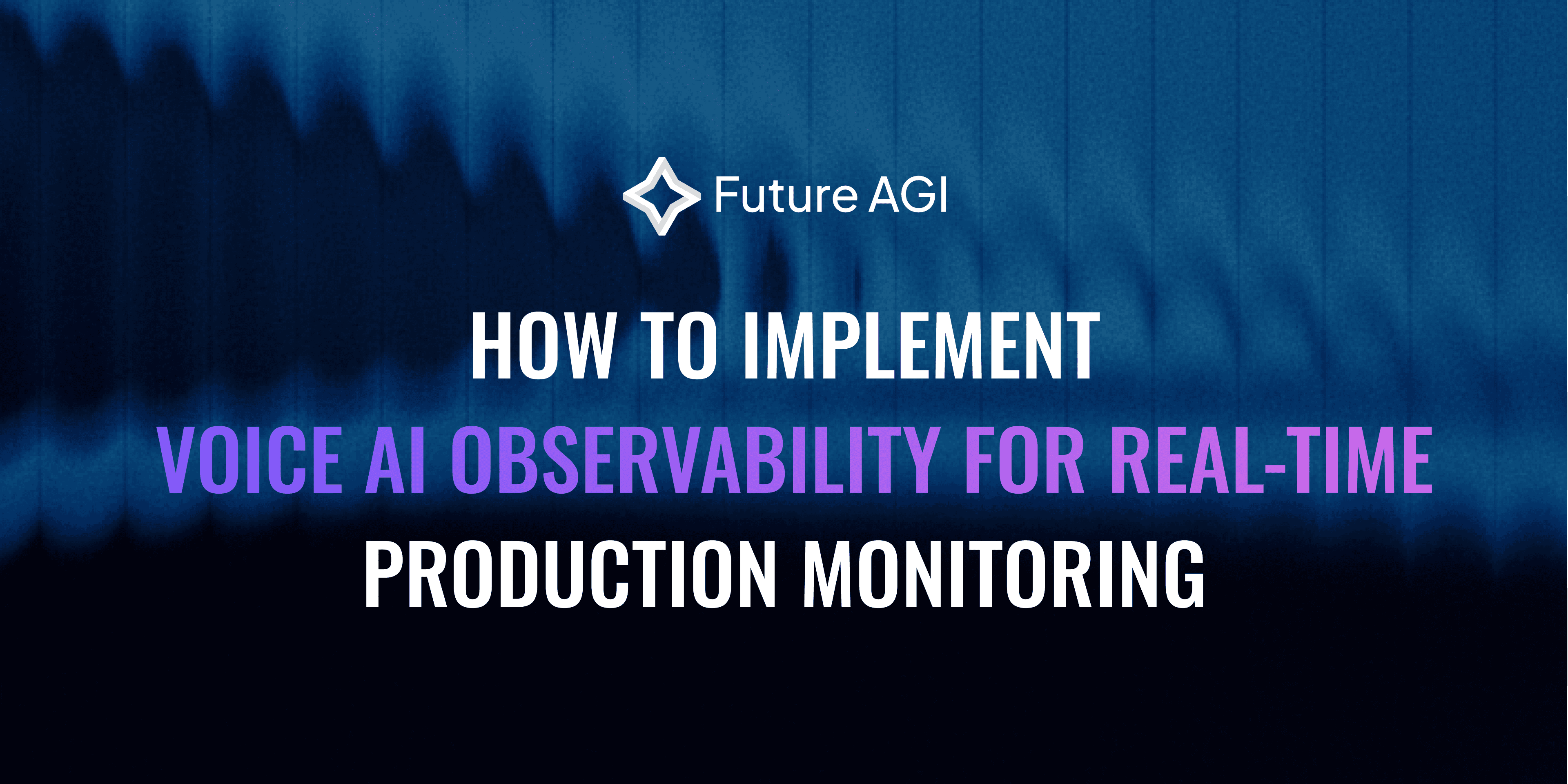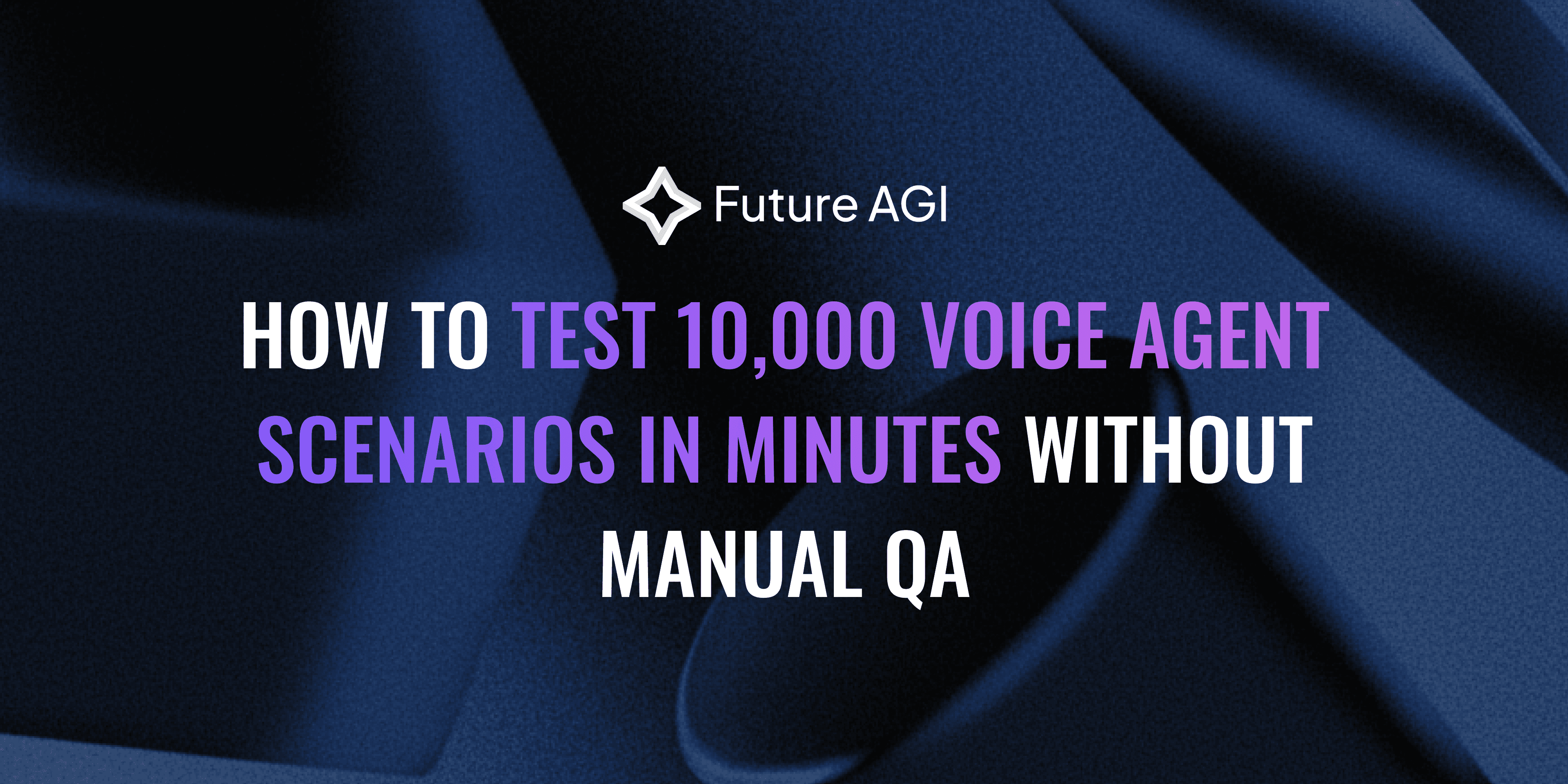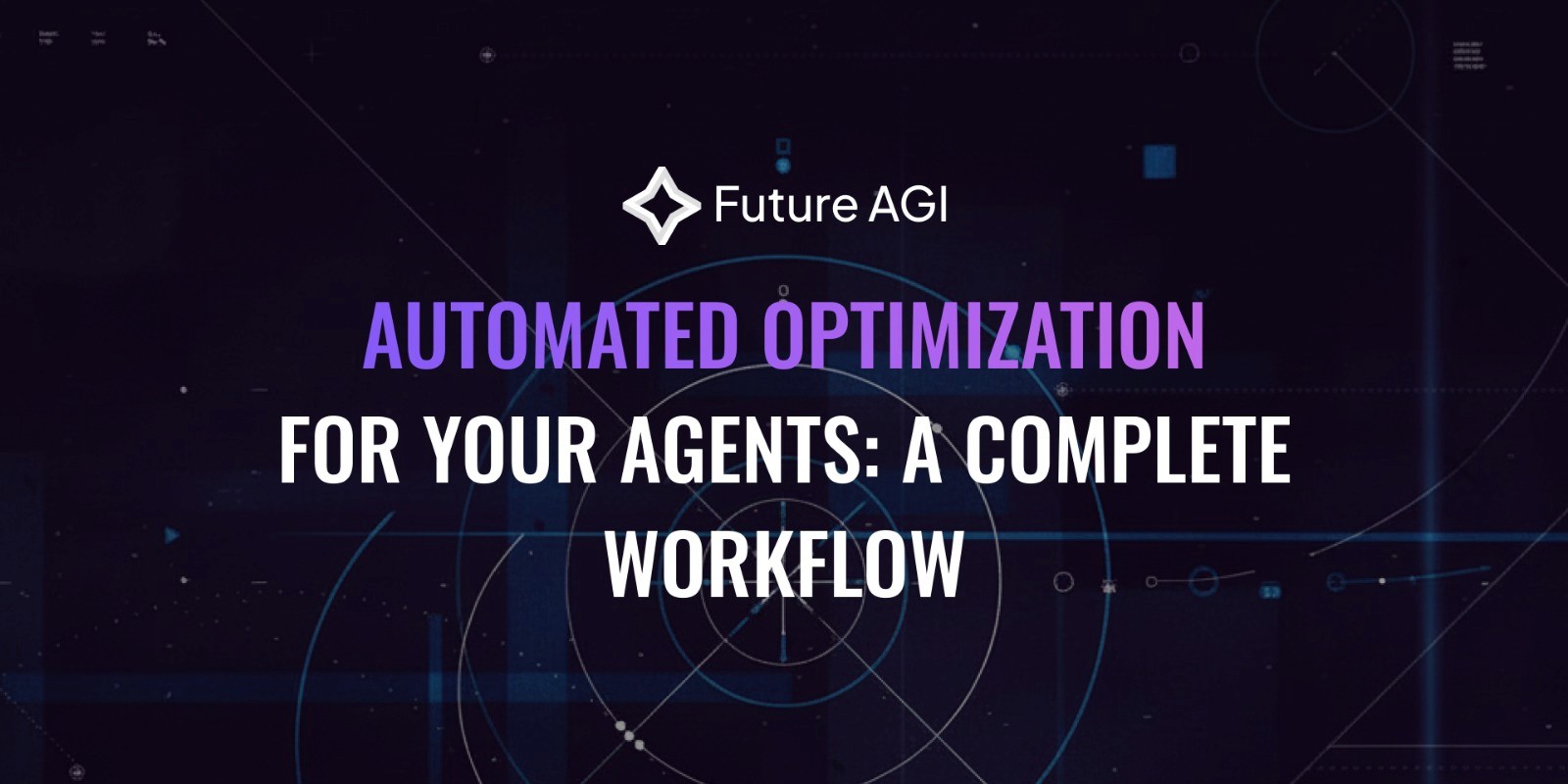Most open source AI tools are abandoned repos with broken docs. We released the production stack we use daily to build reliable AI agents- evaluation that doesn't crash, testing that scales, guardrails that don't compromise, and unified observability. The infrastructure that powers Future AGI is now yours-
Agent-Opt: Auto-optimize agents and prompts with battle-tested algorithms
AI Evaluation: 60+ multimodal evals + custom metrics that don't crash on real workloads
Simulate SDK: Test voice agents at scale with realistic customer simulations
traceAI: Unified observability across all LLM providers and frameworks
Protect: Multi-modal guardrails that actually work (97.2% accuracy, sub-65ms)
pip install agent-simulate ai-evaluation agent-opt traceai
Enterprise-grade reliability without the enterprise tax. Built for teams shipping AI systems that can't afford to fail.
Quick start docs | GitHub | Try free
—Future AGI OSS Team
Open-Source Stack for AI Reliability
🧬 Agent-Opt - Stop Tweaking Prompts, Manually
For: Teams stuck in manual prompt optimization loops
Problem: Manual prompt tweaking takes weeks. Most AI teams don't have optimization pipelines. Every iteration is manual trial-and-error. When it works, you don't know why. When it fails, you don't know where.
What It Does: Automated agent optimization uses battle-tested algorithms like Bayesian Search, ProTeGi, Meta-Prompt, genetic algorithms, etc. Few-shot selection auto-chooses effective examples. Continuous eval cycles converge toward measurable improvement. Every optimization is versioned and traceable. Weeks of tweaking become minutes of configuration.
Install Agent-Opt → Colab to auto-optimize your first prompt tonight
🎭 Simulate SDK - The Waymo Suite for Voice AI
For: Teams building voice agents, phone agents, conversational interfaces, etc
Problem: You can't manually QA thousands of customer calls. Hiring humans doesn't scale, and you have no way to stress-test edge cases before deployment. One bad conversation tanks your NPS faster than a product recall.
What It Does: Simulate is an end-to-end toolkit for simulating, evaluating and optimizing voice agents.
Test your voice agents locally with realistic customer call simulations- no external services needed. Native audio evals via WebRTC/LiveKit. Automated scenario generation with observability baked in. Cut testing costs by 70% while stress-testing like mission-critical infrastructure and ship reliable voice agents
Simulate end-to-end realistic customer calls locally. Complete control over ASR, TTS, and models.
Install Simulate SDK → Get started with Colab → Run your first simulation in minutes
🔬 AI Evaluation - Enterprise-Grade Evals That Actually Work
For: AI engineers tired of "open source" tools that are abandoned repos with NaN scores
Problem: 95% of eval libraries crash on 100 samples, hang for hours, need expensive APIs to function, and break with every model update. Your "free" tool costs more than enterprise software.
What It Does: Our AI-eval lib has 60+ pre-built multimodal checks (text/image/audio) for hallucinations, toxicity, bias, PII, task completion, etc. Powered by our in-houseTuring models- built-in for fast, accurate results. Fully async, zero latency impact. Works with LangChain, LlamaIndex, OpenAI, Anthropic, Bedrock and every agentic framework. Handles 10K+ samples without breaking. Clear explanations, not fuzzy scores.
Install AI Evaluation → Integration Doc → Score your first LLM output in 5 minutes
🛡️ Protect - Guardrails That Beat GPT-4.1, WildGuard, LlamaGuard-4 on Safety
For: Enterprises deploying LLMs in regulated environments (finance, healthcare, public sector)
Problem: Existing guardrails are either too slow for production (200ms+ latency) or too inaccurate (high false positives). You can't detect threats across voice, images, and text simultaneously.
What It Does: Protect is the first truly multi-modal guardrailing stack (text/image/audio). 97.2% accuracy, sub-65ms latency. Detects prompt injections, toxicity, sexism, data privacy breaches. Teacher-assisted annotation improved label quality by 21%. Every decision includes explanation tags for compliance logs. Deploy on-prem or cloud with full API control.
Download on HuggingFace → Read research paper → Get started with Colab
📊 traceAI - One Unified View Across Your Entire AI Stack
For: Teams running AI across multiple providers and frameworks with fragmented observability
Problem: Your AI pipeline spans OpenAI, Anthropic, LangChain, and custom models. You're logging into 5 different dashboards to debug a single issue and observability becomes impossible. You can't see what's actually happening in production.
What It Does: TraceAI provides standardized tracing for your entire AI stack. Instruments code across all models, frameworks, and vendors. Maps to OpenTelemetry attributes. Works with any OpenTelemetry backend- not locked into our platform. Native support for OpenAI, Anthropic, Mistral, Bedrock, LangChain, LlamaIndex, CrewAI, AutoGen, DSPy, and more.
Install traceAI → Integration docs → Trace your agent behaviour instantly
Your AI is mission-critical infrastructure. Test it like one.
Thanks to the amazing AI community and partner teams for your contributions and feedback, keep it flowing!
Questions? Continue on GitHub Discussions or contact our tech expert today.











